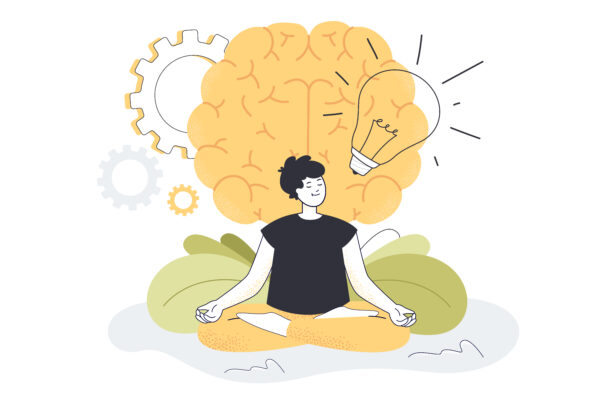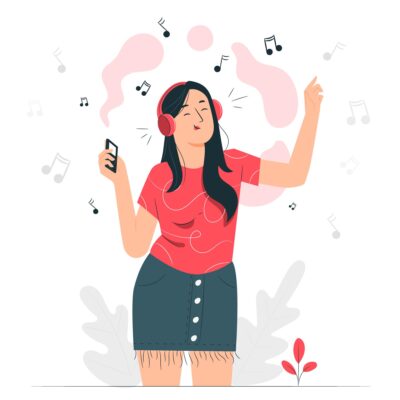
What do you do when you’re having a rough day? You either prefer to calm down the situation by treating yourself to something relaxing like taking a shower, going on a long drive, or listening to your favourite tracks to cover up the loss. The last one – listening to music tops the chart as one can do it from anywhere, be it right after a work-related quarrel with a boss/colleague or anything else in the world, listening to music is the best way to calm yourself.
Aside from its entertainment value, music has played an essential role in our ability to cope with life’s greatest highs and lows. We all listen to music while commuting to work, on a road trip, during a long drive with bae and whenever we are free and feel like listening to something to cheer ourselves up. Basically, music is a part of our everyday life, making it one trigger alternative that can contribute to boosting our overall health and mental wellness.
What does music do to your body, mind and soul?

Young man practicing yoga exercises for mental and body health. Happy tiny guy sitting in meditation in front of brain flat vector illustration. Power of mind, healthy lifestyle, harmony concept
Since the ages, music has been an integral part of any social gathering as it creates soulful waves in our brains. In the mid-twentieth century, music emerged as a therapy for the wellness of people. Listening to relaxing music reduces the level of stress hormones in the blood, and listening to the different types of music makes our brain more active and strong. While, learning to play music improves reasoning, creativity, attention span and memory.
According to a study, listening to music while studying benefits you to memorise more quickly and retain information, especially when you keep a piece of classical or smooth jazz music in the background. Be a regular music listener to boost your creativity, regulate your mood, reduce stress, and relieve depression. It also helps in physical wellness as it keeps your heart healthy, increases your immune system, improves your sleep quality, and helps you eat less.
What type of music should you listen to?

Classical Music
We already know how listening to classical music benefits our brain and mental health as it helps you with relaxation, concentration, memory, cognition and melancholy. Thanks to the tempo of classical music, which is similar to the human heart. Classical music also increases dopamine, creativity and brain activity.
Jazz Music
Jazz music is associated with a mellow mood and helps you improve your memory, mood and verbal abilities. According to several studies, those who listen to jazz or slow music are 25% less likely to develop depression as it reduces negative emotions and evokes happy-positive feelings.
Rap Music
Have you ever listened to the raps of Eminem, Divine, or Dino James? All they rap is about their life experiences and the struggles they dealt with. Rap is all about conveying rhythmic overcoming narratives through music. It helps fight depression and always inspires the people who listen to them.
Pop Music
What do you listen to while working out in the gym? Of course, rock and pop music as it fills energy waves in your body and forces you to go for one more rep. Rock and pop music also increase endurance and physical performance during a workout. Listening to rock and pop music helps you overcome a rough day.

